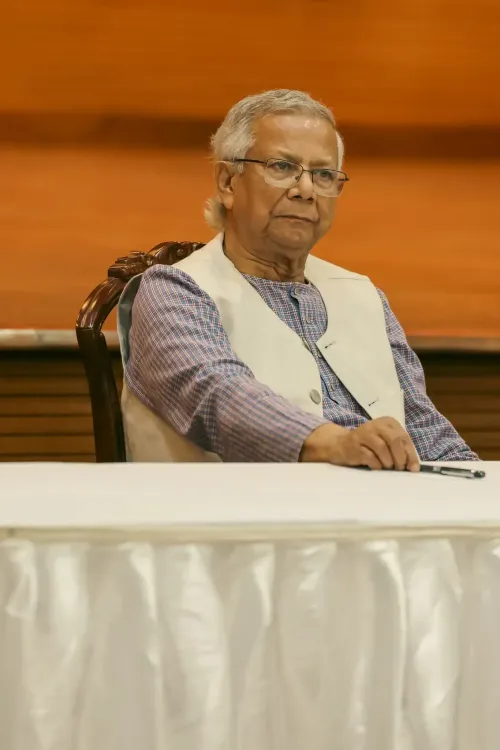Why are over 10,000 new millionaires emerging in Bangladesh amidst economic hardship?

Synopsis
Key Takeaways
- 10,928 new millionaire accounts created in 8–10 months.
- Poverty rate in Bangladesh nearly at 28 percent.
- Unemployment exceeds 8 percent, affecting millions.
- Majority of new millionaires are under 30 years old.
- Urgent need for transparent policies to address inequality.
Dhaka, Sep 20 (NationPress) The Awami League Party of Bangladesh has reported that more than 10,000 individuals have become millionaires in a mere 8–10 months amid the nation’s economic downturn, while countless ordinary citizens find themselves engulfed in poverty under the interim government led by Muhammad Yunus.
The party asserts that Bangladesh's economy is experiencing a significant recession, with unemployment rates surpassing 8 percent and the poverty rate nearing 28 percent.
They noted that hundreds of factories have closed, foreign investments are nearly nonexistent, and 2.6 million people have been laid off, leaving ordinary citizens struggling with escalating prices for essential goods. Additionally, post-Covid, GDP growth has plummeted to just 3.97 percent.
“For the first time, wealth has increased during such a crisis—but banking statistics reveal a stark contrast. The Bangladesh Bank’s Banking Statistics Report indicates that within the past 8–10 months, 10,928 new millionaire accounts have been created. By June 2025, the total millionaire accounts have surged to 127,336. Alarmingly, 87 percent of these new millionaires are under 30 years old, with over 2,000 still pursuing their education,” the Awami League expressed.
Concerned about this situation, the Awami League raised questions regarding the identity of these millionaires and the sources of their sudden wealth as the living conditions for ordinary citizens deteriorate further in Bangladesh.
“With three million people losing their jobs, foreign investment dwindling to almost zero, and 10,928 new millionaires in such a short time, it raises alarms about growing inequality and the clandestine nature of wealth accumulation. Without vigilance, necessary regulatory actions, and transparent policies, the divide between the ordinary populace and a small wealthy elite will only widen, potentially inciting lasting social unrest,” the party warned.
Earlier this month, the Awami League noted that Bangladesh is facing its gravest crisis in over a decade, fueled by Islamist militancy, extremism, economic collapse, unemployment, lawlessness, and widespread unrest under the Yunus administration.










